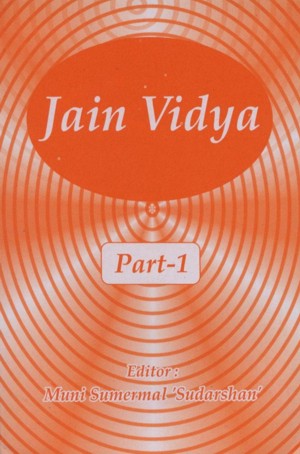Lesson - 8
Twenty-Five Principles Of Jainism
1. Four worldly existences:
(a) Hellish
(b) Human being.
(c) Sub-human / vertebrate animals
(d) Heavenly being.
2. Five Classification:
(a) One-Sensed.
(b) Two-Sensed.
(c) Three-Sensed.
(d) Four-Sensed.
(e) Five-Sensed
3. Six Bodies:
(a) Earth-bodied beings
(b) Water-bodied beings
(c) Fire-bodied beings
(d) Air-bodied beings
(e) Vegetable-bodied beings
(f) Mobile beings (trasakaya)
4. Five Sense Organs
(a) Sense-organ of hearing.
(b) Sense-organ of sight
(c) Sense-organ of smelling.
(d) Sense-organ of taste.
(e) Sense-organ of touch.
5. Six Bio-potentials (paryaptis)
(a) Ailment
(b) Body
(c) Sense-organ
(d) Inhaling and exhaling.
(e) Speech
(f) Mind.
6. Ten Bio-energies (pranas)
(a) Power of the Sense-organ of hearing.
(b) Power of the Sense-organ of seeing.
(c) Power of the Sense-organ of smelling.
(d) Power of the Sense-organ of taste.
(e) Power of the Sense-organ of touch.
(f) Power of mind.
(g) Power of speech.
(h) Power of body.
(i) Power of Respiration.
(j) Power of Life-span.
7. Five Bodies:
(a) The gross body (audarika)
(b) The protean body (capable of transformation at will) - (vaikriya).
(c) The communicative body (taharaka).
(d) The luminous body (taijasa)
(e) The karmic body (karman).
8. Fifteen yoga (activities)
Activities of mind (Four Types of Manoyoga)
(1) Truth
(2) Falsehood
(3) Combined
(4) BehaviouralActivities of speech (Four Types of Vacanayoga)
(5) Truth
(6) Falsehood
(7) Combined
(8) Behavioural
Activities of body (Seven Types of Kayayoga)(9) The gross
(10) The gross-combined
(11) The protean
(12) The protean-combined
(13) The communication.
(14) The communication-combined
(15) The karmic
9. Twelve cognitive activities (upayoga)
Five types of knowledge (Jnana)
(1) Perceptual cognition
(2) Verbal knowledge
(3) Clairvoyance
(4) Mind-reading.
(5) Pure and Perfect knowledge.Three nescience (ajnana)
(6) Perceptual
(7) Verbal
(8) Composition of different aspects.Four intuitions (darsana)
(9) Ocular cognition
(10) Non-ocular cognition
(11) Clairvoyance.
(12) Omniscience (pure and perfect intuition)
10. Eight types of karmas:
(1) Knowledge-obscuring karma.
(2) Intuition-obscuring karma.
(3) Feeling sensation producing karma.
(4) Deluding karma.
(5) Life-span-determining karma.
(6) Body-determining karma.
(7) Status-determining karma.
(8) Hindrance-producing karma.
